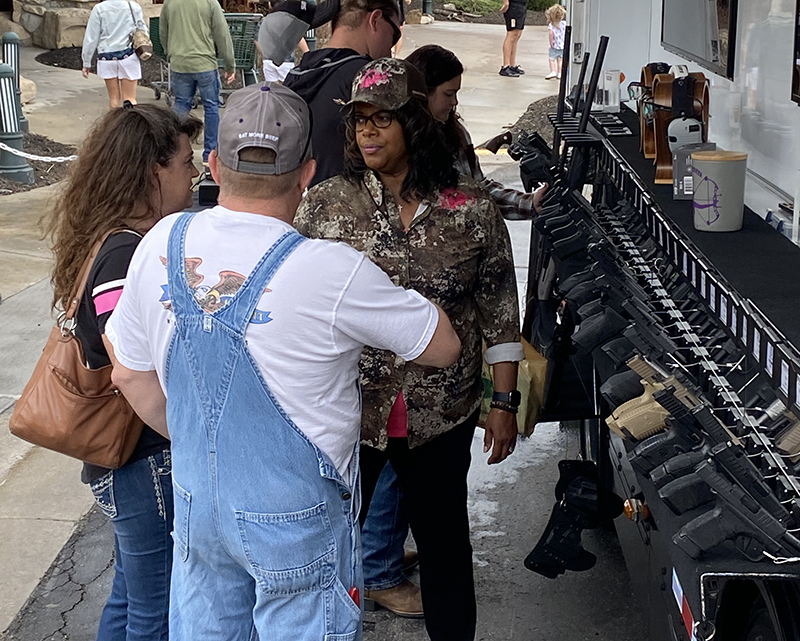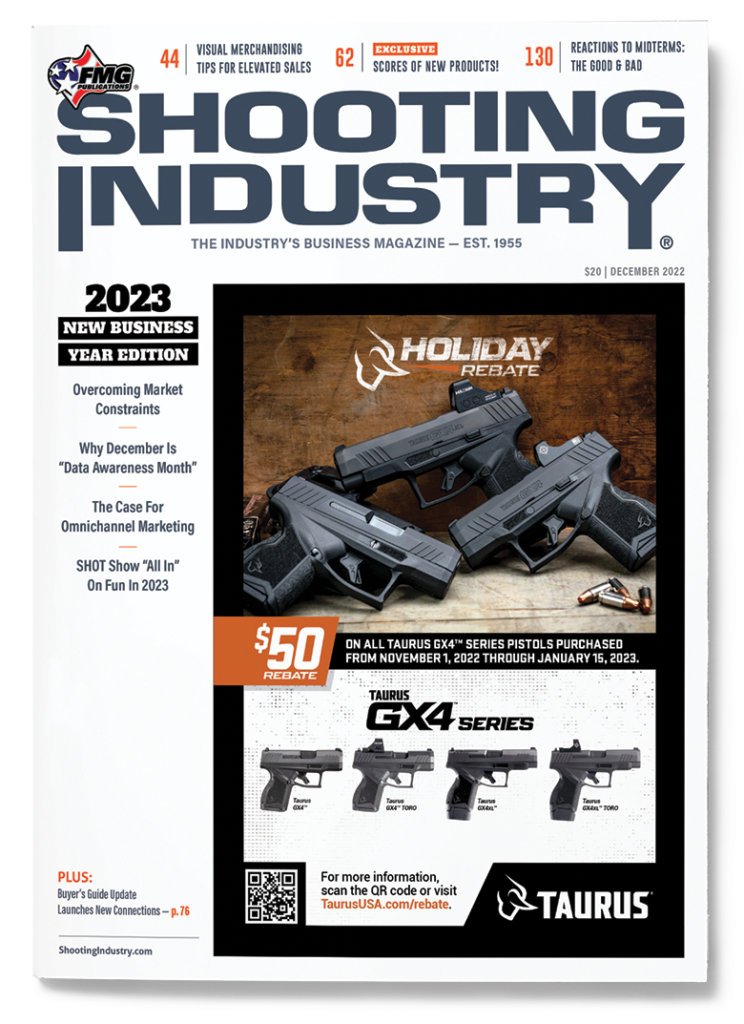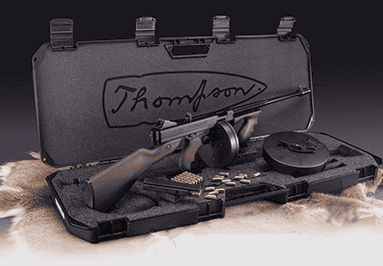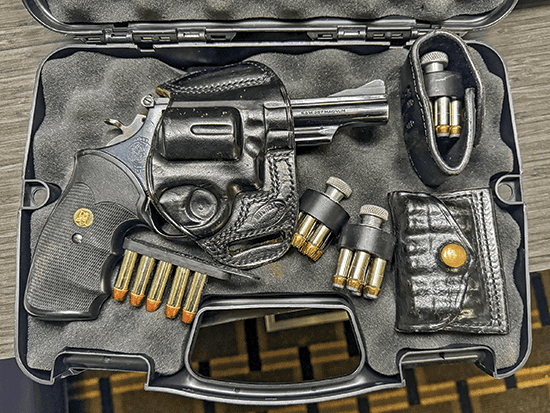New Shooters & Their Entourage
Sales Challenge: The First-Time Buyer & Their Helpful Loved One
Interest in firearms ownership continues to be on the rise. However, helping these new buyers decide which firearm to purchase can present its own unique set of circumstances. One in particular that happens quite frequently involves what I like to call the “Helpful Loved One” — a family member or friend who accompanies the first-time buyer for his or her first purchase.
There’s a psychology of shopping. Wharton’s Jay H. Baker Retail Initiative and the Verde Group released a study called, “Men Buy, Women Shop.” The study explains the differences between how men and women shop.
As the Shoot Like A Girl team has traveled across the U.S., we’ve seen one trend highlighted in the study that actually applies to both men and women when it comes to first-time firearm purchases. Men and women who are deciding to purchase a firearm bring an entourage with them. These tagalongs are there for their “expertise” and moral support for women; and for men they’re there to either look at cool stuff, tout their “expertise” or are the wife or girlfriend who may or may not support this decision to purchase a firearm.
These extra helpers with your prospective new gun owner should, in theory, make a salesperson’s job easier — but most of the time they don’t. The sales associate needs to do three things to account for the “Helpful Loved One” — 1. Assess their experience; 2. Get them on your (the salesperson’s) team; 3. Be mindful of straw purchases.
Following these simple steps can improve your chances for making the sale, and ensure great customer service.
1. Assess Their Experience
When you have a “Helpful Loved One” (henceforth, HLO) accompanying the customer, you should first assess the expertise of both. Just because the HLO has shot for years doesn’t mean they shoot correctly or safely. An encounter in the Shoot Like A Girl mobile shooting range trailer always makes me smile. (You just can’t make this up).
We were slammed at our gun bar and trying to help everyone. I came to a couple who was looking at a gun and asked them, “Do you shoot?” (This is part of our larger class on making sales to new gun owners). The woman replied, “No, but my husband does, and he’s helping me look at these guns.” I was relieved because it meant I could help the next guest.
As I started to move on, however, I noticed the “expert” had shown her to hold the semi-auto pistol with her thumbs crossed behind the grip. I had to step in. I told her, “Let me teach you another way to hold the pistol.” Then I taught her the correct grip and explained the way she was holding the gun would result in an injury when the slide came back — as it would grab her skin and hurt (i.e., “slide bite”). Without missing a beat, her “expert” piped in and said, “I always wondered why my hand got so banged up.” True story.
There are several key things I did to address this situation. Notice I never told her the way she was holding the gun was wrong. I didn’t diminish her husband’s expertise. I simply offered a correct way, and the consequences of the way she was holding the gun. This approach gave them the opportunity to make their own conclusions for right or wrong.
Secondly, note I talked to her — not the HLO. When you’re faced with an HLO who says they’re an expert, follow-up with questions to gauge their level of experience. For example, ask the HLO where they shoot, if they’ve taken classes and how often they get to the range. These leading questions typically give enough information to determine if you’re helping just the customer or both of them.
These extra helpers with your prospective new gun owner should, in theory, make a salesperson’s job easier — but most of the time they don’t.
2. Getting Them On Your Team
Getting an HLO on your team can be quite challenging. You’ve got a limited amount of time to determine the personalities of each, and how to navigate the conversation. In my experience, the HLO often has a hidden agenda.
Most like to be thought of as “the expert.” Most of the time, the HLO will dominate the conversation — if you let them. This leaves the first-time buyer feeling unappreciated, ignored and not valued as your customer. It’s a balancing act of communication to help bring the HLO to your team.
Here’s an example: Let’s say you’re helping a potential new gun owner, and she says, “I think I want to look at a .380. I’ve been researching and think it would be a good first gun for me.” The HLO then starts a discussion about the stopping power of a .380 vs. 9mm or larger caliber.
The conversation is now somewhere between debate and lecture between the salesperson and the HLO. What’s happening to the customer? They’re normally confused, annoyed and feeling like their opinion isn’t correct. Do you think this discussion would help them make the decision to purchase that day, or could they be so frustrated they simply walk away? This is an area that’s not really fair to the sales associate. Is the customer frustrated with you or the HLO? (Almost always, it’s both of you.)
At the end of the day, however, the blame goes to the salesperson (the stranger), which means the customer will take their checkbook to a different store the next time they go shopping.
Therefore, always bring the conversation back to the customer. Acknowledge the HLO, but concentrate on the customer. In the scenario above, a way out of it would be to educate the customer on the differences between a .380 and larger-caliber pistols. Discuss with them concealment variations between the thicknesses of the grips, and educate them on the differences in ammunition. The HLO may learn something, too.
My favorite way to get an HLO on my team is to make them understand you know they truly are there to help and together the team can help the customer find the best gun for their needs and budget that’s most comfortable.
The biggest potential bonus of having Helpful Loved Ones in your store is when you access their
expertise and bring them onto your team to help their loved one; there’s a good chance you’ll be able to keep both of them as lifelong customers.
3. Be Mindful Of Straw Purchases
There are times when the HLO just won’t budge on what gun they think is the right one for your customer. They might dominate the entire conversation, show a lack of concern for the actual customer and leave you feeling like the customer is only there to fill out the paperwork.
If this is the case, it’s important to educate the non-gun owner of the law and explain the “Don’t Lie for the Other Guy” campaign (dontlie.org) and the consequences of straw purchases. Most importantly, though, if you feel it could be a straw purchase, stop the interaction and follow your store’s policy.
Keep in mind, the biggest potential bonus of having Helpful Loved Ones in your store is when you access their expertise and bring them onto your team to help their loved one; there’s a good chance you’ll be able to keep both of them as lifelong customers.






